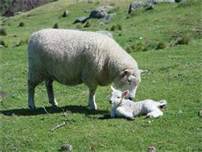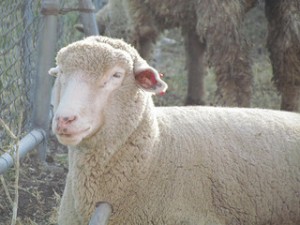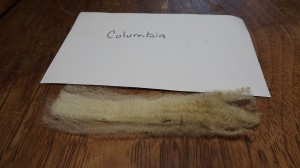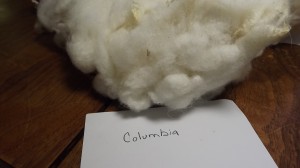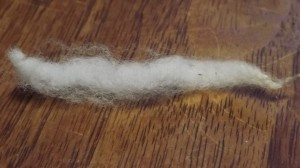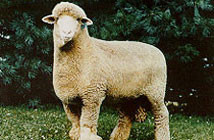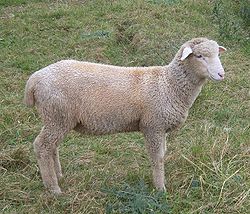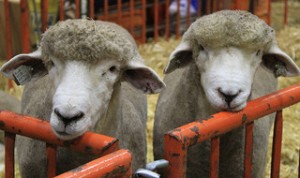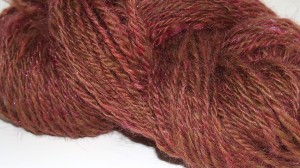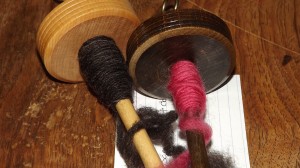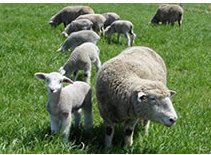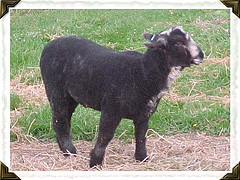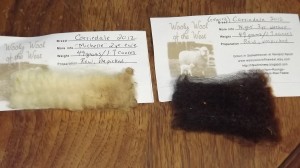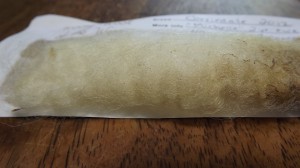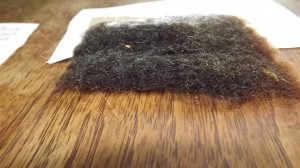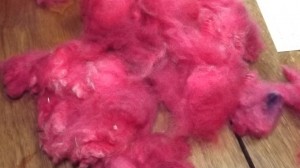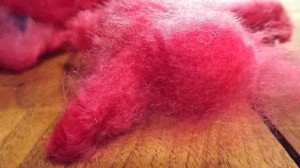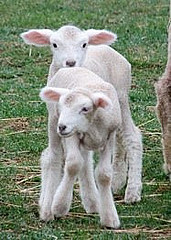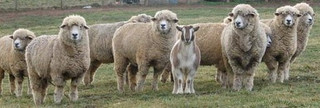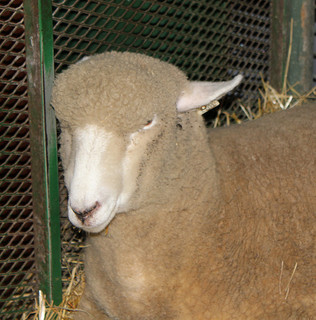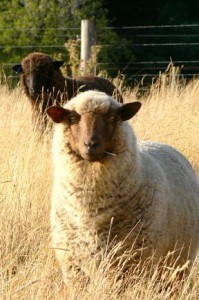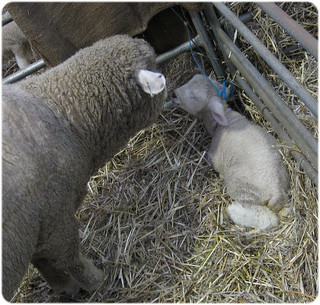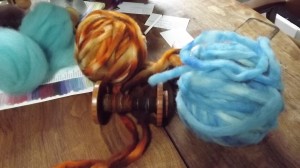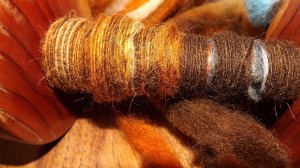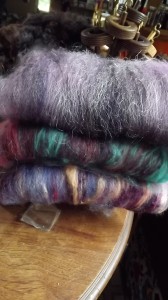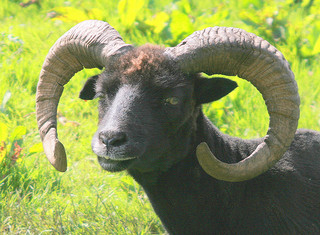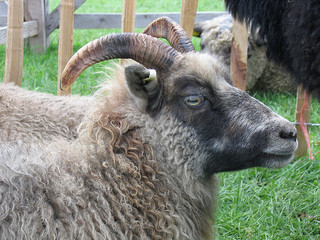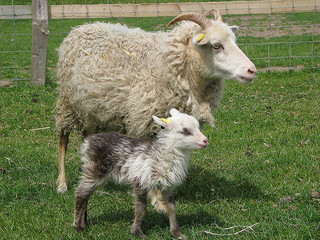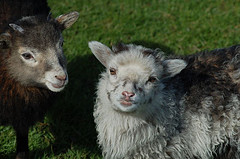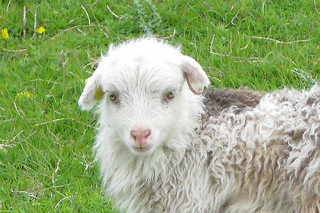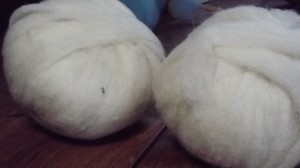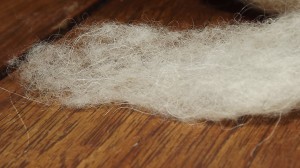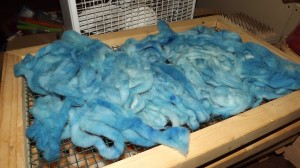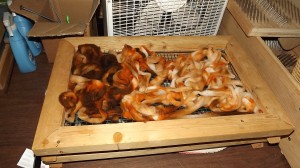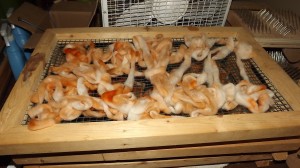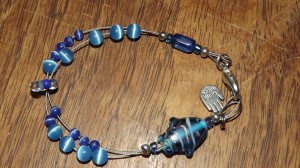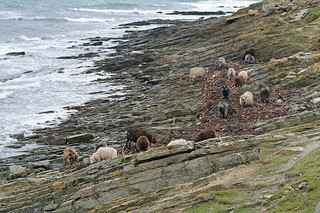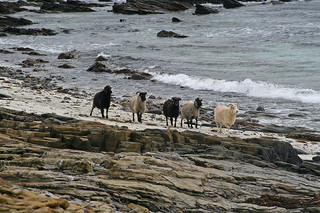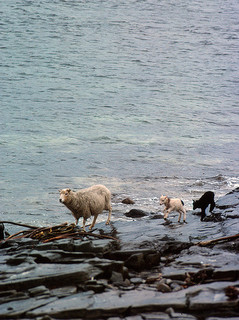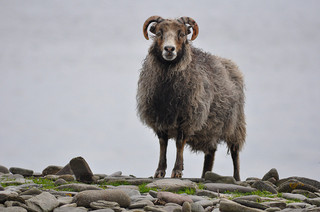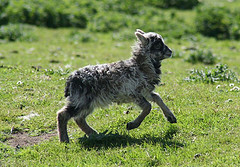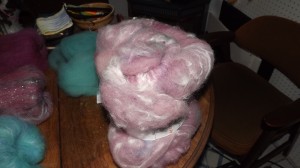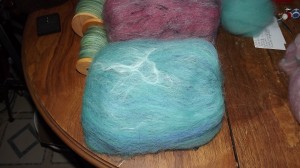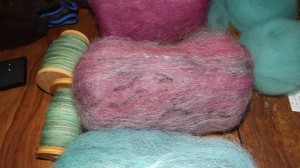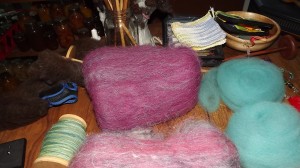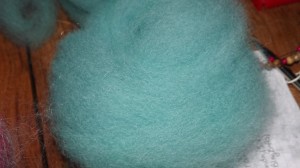I didn’t expect Columbia to be as long and soft as it is. It’s really a great hand-spinners fiber I wonder why we don’t find more. The average fleece ranges from huge 10 pds to a whooping 16 pds. That like 4 sweaters worth.
The staple length is usually between 3.5 and 5 inches mine was closer to the 5 inch range. The micron count ranges from 24- 31 , mine is definitely on the softer side. It’s super crimpy and buttery it would make a very , very bouncy, elastic yarn.
Here are some pics of my columbia fleece.
I’ve decided not to dye this fiber because it came out so bright white. I think I will leave this one as it is.
Last day to enter into the contest for the lovely hand spun. You can enter here.
All information provided by The Columbia Sheep Breeders Association of America.
I was really surprised to read that Columbia sheep are an American breed. They were in fact created by the U.S. Dept of Agriculture in the early 18th century. The first cross was Lincoln Ram to a Rambouillet Ewe. They took the elite of these crosses and created the Columbia Breed.
These sheep were made for the ranges out west. As more people became interested in the breed. They proved to be quite adaptable. Columbias’ are a large polled breed. Rams weigh in at a hefty 225-300 pds. Ewes’ come in at 150-225 pds. These are a well balanced sheep, bred to produce a dense, weighty, white fleece.
The weeks contest is for some lovey handspun.This is the Redwood Colorway.in my lovely basic blend. The Basic Blend composition is 70% wool, 20% mohair and 10% firestar. This yarn is a 3-ply. It’s 126 yards of squishy, lofty yarny goodness.
To enter just reply in this post before Thursday , August 9th. Happy Fibering!
All information provided by The Columbia Sheep Breeders Association of America.
Here a picture of the spun corriedale:)
Just a quick note about what is going on at the site. I’m working on making an more cohesive store intereface and while I’m working on it you may see test pages up for classes. As I’m in test mode nothing is buyable right now. If you need something feel free to e-mail me at Brandischoch@thefiberofmybeing.net I will be more than happy to help you.
Corriedale is a favorite among spinners (ok it’s one of my favorites too). The fleeces are dense, with incredible crimp. A corriedale fleece can weigh a copious 10-17 pds per shearing.
The staple length is typically 3.5 to 6 inches and the micron count is 24-31 making this a medium soft wool. As I had previously stated some breeders association see colors as a defect. I happen to love sheepies of all colors and will not discriminate!
I have both white and brown corriedale to work with:
All dyed up:
Information from: Wikipedia and Oklahoma State University
PS. Get your copy of the Fiber Fanatic Files, our wanton woolly lore.
Corriedale sheep are an intriguing breed. They were developed harmoniously in both Australia and New Zealand around 1874, by crossing merino sheep with Lincoln sheep. The breed was created to produce a dual purpose sheep that was good for meat and commercial wool production. Corriedale comes in as the second most popular sheep right behind merino.
Corriedale sheep are polled with wool on the face and legs. They are an evenly balanced sheep and can be white or naturals colors with certain breeding associations any color other than white can be considered a defect. They have a long life span and are easy lambers, with a very docile temperament. Corriedales have a high fertility rate and do well in adverse conditions making them a sheep that can thrive in almost any climate. Corriedales are a good size sheep rams can weigh from 175-275 pds and the ewes come in at 130-180 pds. They have been used to develop later breeds of sheep such as targhee, and cormo.
Information from: Wikipedia and Oklahoma State University
To Sweet to leave out!
PS. Don’t forget to sign up for your free fibery updates thru the rss feed on the upper right!
Spun North Ronaldsay
New Rescued and Recycled Batt going into the store soon!
I don’t often talk about wordpress plugins or anything geeky like programming but I wanted to tell you about commentLuv because I Luv what it does. When you comment on a post you have the option of leaving your blog, site etc. I like this because it enables me to learn more about my readership. Like a digital calling card. They have made some improvements to the program it can now show you if other plugins or programs are causing errors to your commentluv. I have run into this a time or two on other blogs where it just wouldn’t work. I’m so behind the tech loop it’s crazy I wrote code when cobol was it and c+ was just making the scene. I don’t pretend to know and understand everything that the new update does. I just know I love the program and wanted to share with my readers.
North Ronaldsay sheep come in an assortment of colors white to brown, grey and black they are sometimes mixed colors however these usually fade to fawn coloring as the sheep ages. The wool is soft and a bit kempy. A fleece usually weighs in at about 2 pds or 1 kg. It is a primitive fleece sometimes called double coated.
I was able to find many picture of this breed. The babies are so cute I couldn’t resist adding some more.
Here is my North Ronaldsay fiber. It’s soft with a tinge of prickle I’d put it as around 29 microns. I’m getting much better at placing fiber by micron count I tested it before I read about it. I was pleasantly surprised that the micron count is around 28 according to the North Ronaldsay Sheep Fellowship. The staple is between 3-4 inches (100 mm). I think I may just keep a hold of this fiber and make a really cool scarf or wrap with it.
All dyed up! I decided to do an experiment with the north ronaldsay fiber. I unwound one bump and dyed it light blue the other I left in a bump and kettle dyed it golden brown here is what happened.
I like how it turned out I think it will look great!
P.S. Remember to comment on Monday’s Post to enter this weeks drawing for the beautiful row counting bracelet below.
North Ronaldsay sheep hail from from area of the same name , on Orkney Islands of Scotland. The are the descendants of sheep originally found in the area and the breed has remained virtually unchanged since the bronze age. These sheep are especially unique because they live virtually exclusively on seaweed for many months during the year. This is the only food available to them as the shoreline is barricaded in by a 6ft stone wall. North Ronaldsay sheep have developed an interesting digestive system eating during low tide and ruminating during high tide. The flock here is semi- feral.
However because this is such a small flock some sheep have been bred and moved inland to preserve this precious breed. Some have been imported as an exotic breed. This breed is on the Rare Breeds Survival Trust as category 5 meaning they are a minority breed. At the last census(2009) there were about 500 breeding ewes and about 3700 total on the Islands. These sheep are bred for their colorful , lovely soft fleeces.
This is a petite, primitive breed adults rarely weight over 30 kgs or 66 pds. Rams have a heavy mane and beard with heavy curved horns. Ewes can be horned or polled. Their faces are “dished.” I had to look up this term as I had never seen it used for sheep. It means that the faces are concave in appearance. Due to the diet of seaweed they are very susceptible to copper poisoning, standard sheep management systems would poison them.
Information from Wikipedia, North Ronaldsay Sheep Fellowship, and the Rare Breeds Survial Trust.
P.S. This weeks contest is for the knitting row counter bracelet below. Just comment on this post to be entered.

